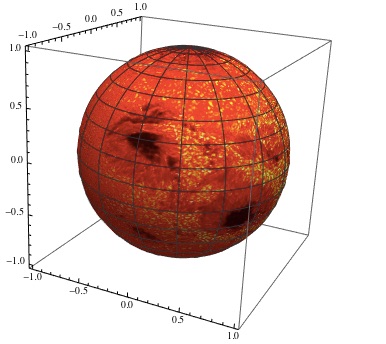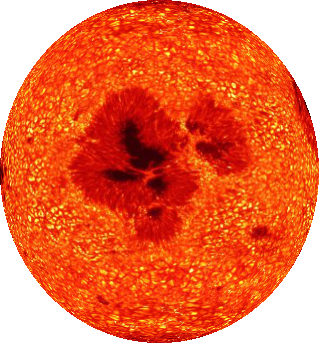I'm trying to create an equal area projection from a sphere. The sphere might not necessarily be the Earth. I would like, for instance, to use the Sun. Using the code
GeoGraphics[
GeoRange -> All,
GeoModel -> Entity["Star", "Sun"],
GeoProjection -> "Orthographic"]
doesn't work. This must have something to do with the data that Mathematica has for the Sun.
So, I decided that I need to create my own sphere like so:
SphericalPlot3D[1, {u, 0, Pi}, {v, 0, 2 Pi},
PlotPoints -> 50,
TextureCoordinateFunction -> ({#5, 1 - #4} &),
PlotStyle -> Directive[Texture[Import["https://i.sstatic.net/YOzSq.jpg"]]]]

Now, I want to use an equal area projection. Preferably, I would like to use GeoProjection and GeoProjectionData. But I am having trouble putting it into the correct format. I don't need to use GeoProjection, but it seems like a good option.

